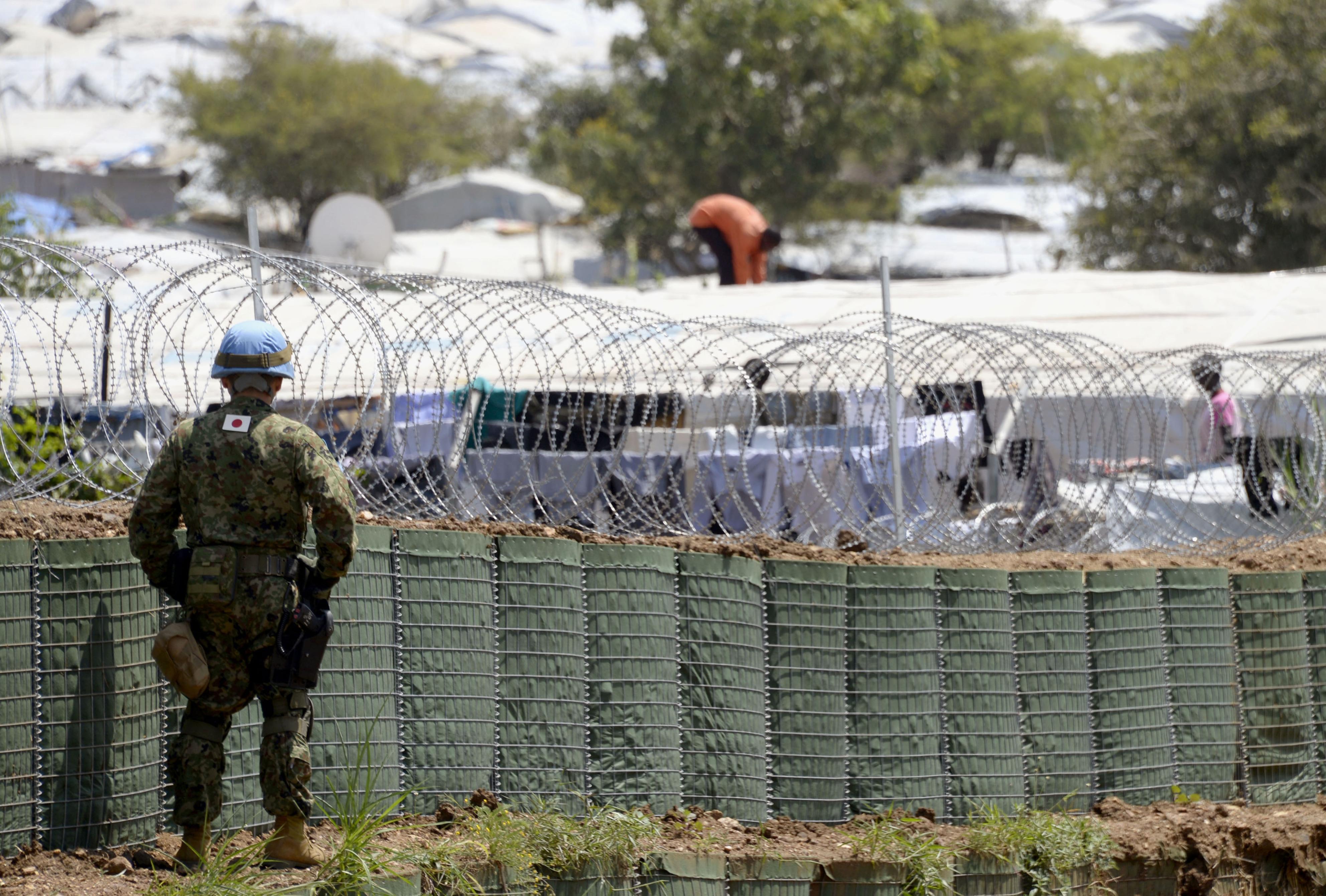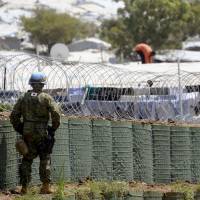The government is making arrangements to expand the role of the Self-Defense Forces mission in South Sudan as early as May under the security legislation enacted last week, according to officials.
SDF personnel dispatched to the African country as part of U.N. peacekeeping operations will be allowed to go to the aid of other countries' troops or U.N. staff under attack, the officials said Tuesday.
It will likely be the first practical application of the security legislation, which is expected to take effect around the end of March.
The controversial legislation, enacted Saturday despite strong protests from opposition lawmakers and voters, allows the SDF to use force to defend allies under armed attack and expands the scope of its use of arms in U.N. peacekeeping operations.
SDF personnel operating in U.N.-led peacekeeping missions are currently forbidden from rescuing peacekeepers from other countries or civilian U.N. personnel who come under attack in areas other than those in which the SDF members are deployed.
According to the officials, the government plans to decide on new rules of engagement for the SDF by the end of this year to specify circumstances in which use of weapons is permitted.
SDF personnel will then be trained based on the new rules, and a new peacekeeping operation implementation plan for South Sudan, including the newly added rescue duties, will be approved by the Cabinet, the officials said.
SDF troops have been in South Sudan since 2012 to help develop infrastructure. The country became independent from Sudan in 2011 following decades of civil war.




